Known as El Libertador (The Liberator), Simon Bolivar was a Venezuelan military and political leader who is renowned for playing the leading role in many Latin American countries achieving independence. Born in a wealthy aristocratic family, Bolivar lost his parents when he was young. He married at the young age of 18 but lost his wife to disease within a year, an event which proved to be a turning point in his life and pushed him toward the independence movements taking place in South America. Though Bolivar was able to establish Gran Colombia; which included the territories of present-day Colombia, Venezuela, Ecuador, Panama and Peru; his dream of a united South America ultimately failed with its regions becoming sovereign states. Know about the family, life, military career and death of Simon Bolivar through these 10 interesting facts.
#1 HE DEVOTED HIS FORTUNE TO THE REVOLUTIONARY WARS IN SOUTH AMERICA
Simón José Antonio de la Santísima Trinidad Bolívar y Palacios was born on 24th July 1783 in the present capital city of Venezuela, Caracas. He was the second son and fourth child of Don Juan Vicente Bolívar y Ponte and his wife Maria de la Concepción Palacios y Blanco. His father was a militia colonel. The Bolivar family was a wealthy, aristocratic family with Spanish ancestry, which had settled in Venezuela in the 16th century. American families with confirmed European ancestry were called Creole. Majority of the family’s wealth came from silver, gold, and copper mines. Simon Bolivar ultimately devoted his fortune to the wars of independence in South America and from being among the richest in the region ended in poverty by the time he died.
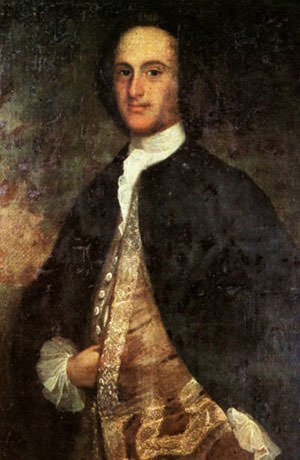
#2 HIS PARENTS DIED BEFORE HE WAS 10
Simon Bolivar’s father died before he was three years old and his mother died six years later in 1792. The person who took care of him when he was young was the family’s slave, Hipólita, whom Bolivar called “the only mother I have known”. Simon began his education in Venezuela by taking private lessons from several renowned professors. He was most influenced by Venezuelan philosopher and educator Simón Rodríguez, who introduced him to the world of 18th-century liberal thought. Bolivar entered the military academy of the Milicias de Aragua in 1797 at the age of 14 and two years later he was sent to Spain to follow his military studies in Madrid.
#3 THE DEATH OF HIS YOUNG WIFE WAS THE TURNING POINT OF HIS LIFE
While in Madrid, Simon Bolivar married Maria Teresa del Toro Alayza on May 26, 1802 after two years of courtship. Bolivar was 18 and Maria Theresa was 20 when they married. The young couple moved to Bolivar’s home in Caracas in July. Shortly afterwards Maria Theresa fell seriously ill and she died from yellow fever on January 22, 1803, less than 8 months after her marriage. Bolivar was devastated and vowed never to marry again, a promise he kept. In 1804, he travelled to Europe where he reunited with his mentor Rodríguez, who helped him out of acute depression and pushed him toward the greater cause of liberating his country Venezuela. Bolivar later referred to the death of his wife as the turning point of his life.
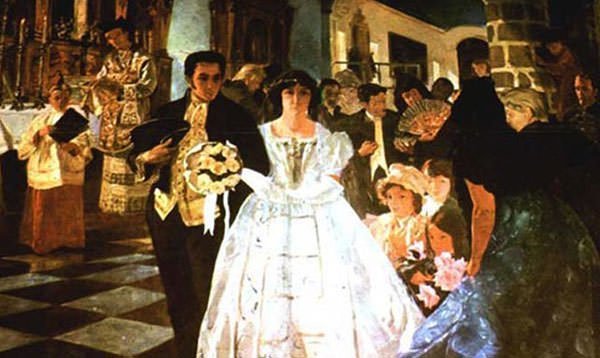
#4 HE INFAMOUSLY HANDED OVER FRANCISCO DE MIRANDA TO SPANISH AUTHORITIES
In 1810, Spanish colonial administrators were deposed and the Supreme Junta was established in Venezuela, initiating the Venezuelan War of Independence. Bolivar worked as a diplomat and convinced famous military leader Francisco de Miranda to return to Venezuela to take part in the revolution. Spanish Captain, Domingo de Monteverde, began a military campaign against the revolutionaries and rapidly advanced into their territory. Miranda saw the republican cause as lost and signed a capitulation agreement with Monteverde in July 1812. Bolivar, who was acting as a colonel, had himself abandoned his post. However, he saw Miranda’s action as treacherous. Along with other leaders, he arrested Miranda and turned him over to Monteverde. Miranda died in a Spanish prison four years later.
#5 SIMON BOLIVAR ISSUED THE FAMOUS WAR TO DEATH DECREE IN 1813
Simon Bolivar launched his campaign to reclaim Venezuela from New Grenada (present-day Colombia) in February 1813. During the campaign he dictated his famous Decree of War to the Death which allowed the killing of any civilian born in Spain who was not actively assisting South American independence, while exonerating Latin Americans who had committed such murders and atrocities. His decree was in response to severe crimes and massacres by Spanish soldiers after the defeat of the revolutionaries. Bolivar was able to take back the Venezuelan capital Caracas in August 1813 but the following year royalists, or those in favor of Spanish rule, defeated the republican forces to retake Venezuela.
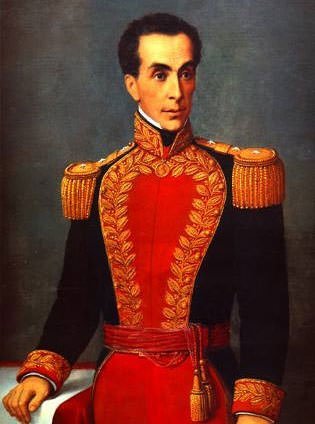
#6 HIS SUCCESSFUL NEW GRANADA CAMPAIGN WAS A PIVOTAL MOMENT
After the fall of the Second Republic of Venezuela, Bolivar fled to Jamaica and then to Haiti. He made attempts to get the support of Europe and U.S. for the revolutionary cause but it was the Haitian president Alexandre Pétion who provided the exiled South Americans with money, volunteers and weapons. With help from Haiti, the revolutionaries were able to defeat the royalist forces and establish the Third Republic of Venezuela. Then Bolivar, in one of the most daring attacks in military history, surprised the Spanish forces by taking a route considered impassable in the rainy season and decisively defeated them in the Battle of Boyacá on August 7, 1819 to liberate New Grenada. This victory is considered pivotal to the ultimate success of the Spanish American wars of independence as it provided the revolutionaries with economic and human resources to win the war.
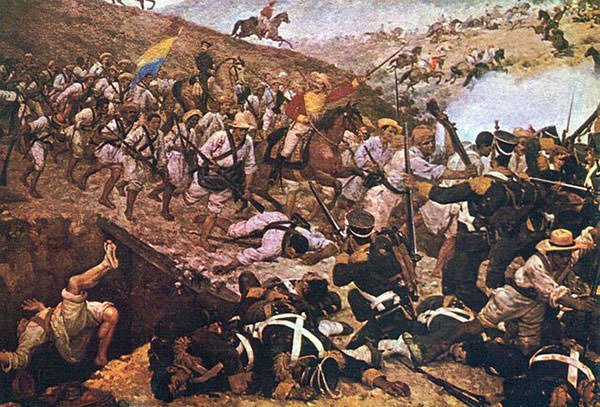
#7 SIMON BOLIVAR IS KNOWN BY THE TITLE EL LIBERTADOR
To realize his dream of a united Spanish America, Bolivar played the leading role in the formation of Gran Colombia in 1819. Initially it comprised of parts of Venezuela and New Granada. Gran Colombia then helped other provinces still at war with Spain to become independent: almost all of Venezuela was liberated in 1821; Quito was conquered the following year; Peru’s independence was secured in 1824; and in 1825, Upper Peru (modern-day Bolivia) was liberated. Simon Bolivar actively participated in most of these campaigns. He fought more than a 100 battles in the course of his military career. Bolivar was hailed as El Libertador (“The Liberator”) during his time and is still known by the title.
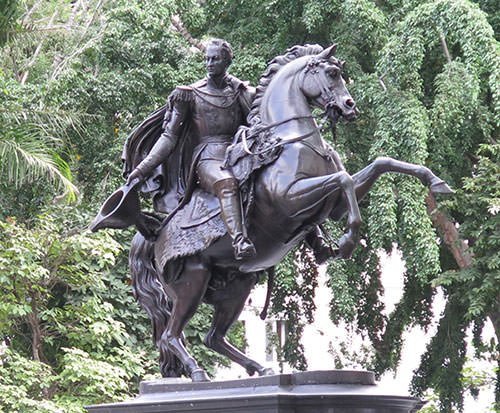
#8 HIS DREAM OF A UNITED SPANISH AMERICA FAILED WITH THE COLLAPSE OF GRAN COLUMBIA
From 1819 to 1830, Simon Bolivar was the President of Gran Colombia, which ultimately included the territories of present-day Colombia, Venezuela, Ecuador, Panama, northern Peru, western Guyana and northwest Brazil. Bolivar believed that a federation like the one in the United States was unworkable in Latin America and he thus tried to implement a centralist model of government in Gran Colombia. He was accused of betraying republican principles and of wanting to establish a permanent dictatorship. Bolivar ultimately failed to prevent the collapse of the union. Gran Columbia was dissolved in the closing months of 1830 and was replaced by the republics of Venezuela, New Granada and Ecuador.
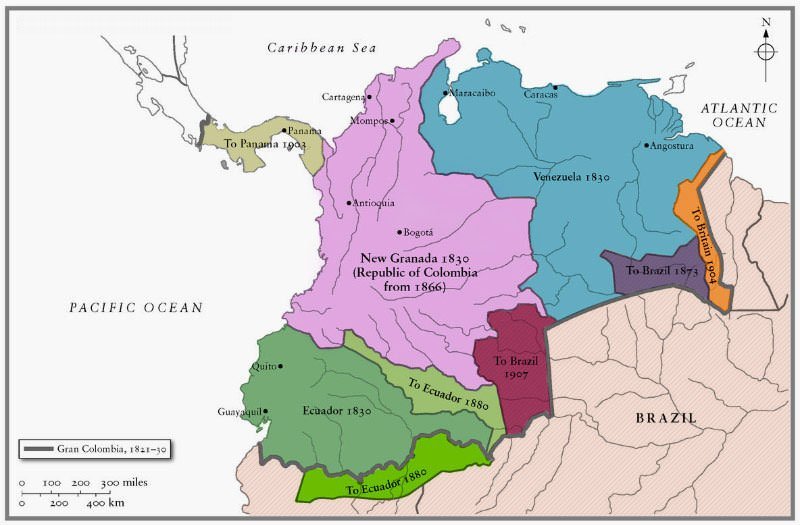
#9 HIS LOVER SAVED BOLIVAR FROM BEING ASSASSINATED
In his later life, Simon Bolivar had an intimate relationship with Doña Manuela Sáenz y Aizpuru, who was also a South American revolutionary leader. Saenz met Bolivar in Quito in 1822, the very year she had separated from her husband. They were instantly attracted to each other and their relationship continued till Bolivar’s death in 1830. There was an assassination attempt on Bolivar during the September Conspiracy of 1828. Saenz prevented the attempt against him and facilitated his escape. Due to this Simon used to call her Libertadora del libertador (“liberator of the liberator”).
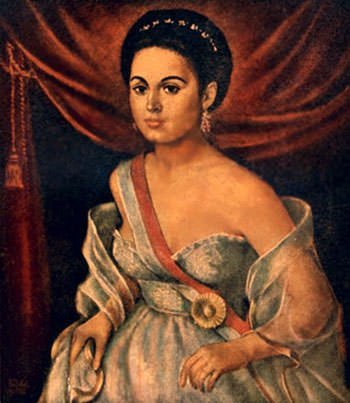
#10 BOLIVIA IS NAMED AFTER HIM
Simón Bolívar died of tuberculosis on 17th December 1830 in the city of Santa Marta in present-day Colombia. He was 47 years old. In July he had resigned from presidency and intended to leave Gran Columbia for exile in Europe but he died before setting sail from Cartagena. Bolivar is considered one of the great heroes of South American independence movements and he has been honored in countries across the region. The nation of Bolivia is named after Simon Bolivar making him one of the few men to have a country named after them. Venezuela, officially Bolivarian Republic of Venezuela, also features his name.
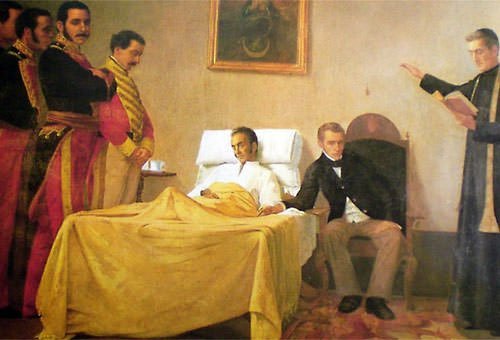
KARL MARX ON SIMON BOLIVAR
Despite his achievements, Simon Bolivar has drawn flak from several notable men, most prominently from the renowned philosopher Karl Marx. Marx published a biography of Bolivar in which he criticized Bolivar for abandoning his troops. He further claimed that Bolivar’s rule was a military anarchy in which he left the most important affairs in the hands of his favorites, who squandered the finances of the country. Marx dismissed Bolívar as a “false liberator who merely sought to preserve the power of the old Creole nobility to which he belonged”.

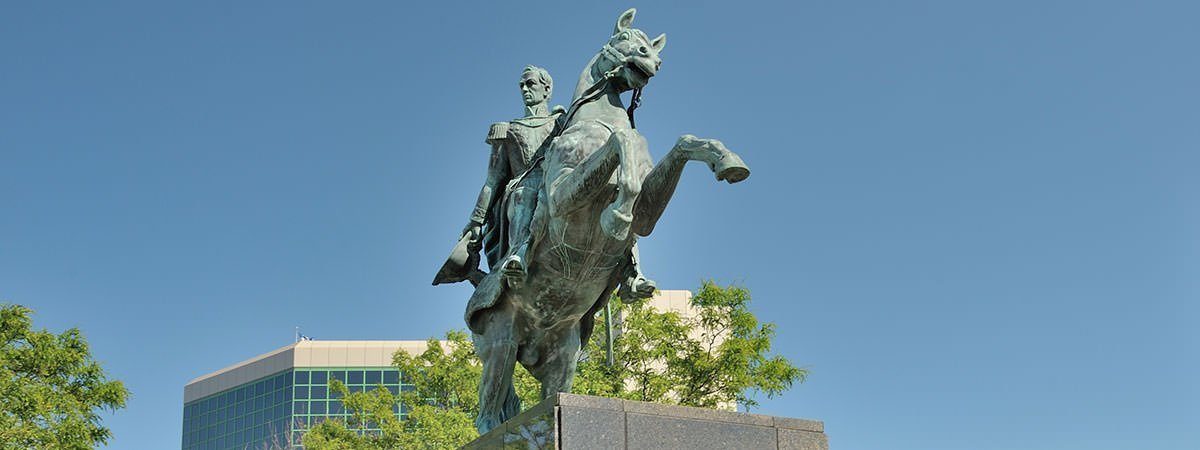
Creole is a French word, in Spanish you write Criollo
Thanks for that information.